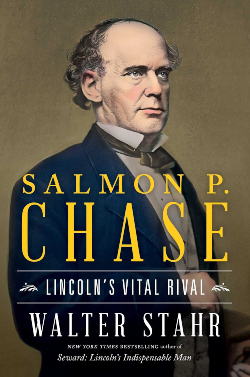Randall M. Miller
132 Articles
Last 30 days
Last 6 months
Last 12 months
Last 24 months
Specific Dates
From:
To:
PREMIUM
Benjamin Franklin Butler: A Noisy, Fearless Life
Leonard sets the record straight on Butler and provides an object lesson on the ways his personality and principles combined to effect public good.
PREMIUM
Of Blood and Sweat: Black Lives and the Making of White Power and Wealth
Ford’s forceful arguments and writing will compel readers to face the facts of the long history of exploitation and appropriation that have defined so much of America’s struggle with itself to give substance and meaning to its promise of “freedom” for all.
PREMIUM
To Walk About in Freedom: The Long Emancipation of Priscilla Joyner
Emberton’s sensitive and sympathetic recovery of Joyner’s story speaks volumes on what freedom meant and might mean, and why the best way to know a person is to listen to and learn from the stories they choose to tell.
PREMIUM
Lincoln and the Fight for Peace
Avlon sometimes strains to make Lincoln’s Civil War–era approach to peace applicable to world wars, and relies too much on post-assassination memoirs for his Lincoln tales, but he does make the case that to win a war one must also know how to win the peace and invest in doing so.
PREMIUM
A House Built by Slaves: African American Visitors to the Lincoln White House
An original and revealing book on a subject heretofore surprisingly missing from the large Lincoln literature.
His Greatest Speeches: How Lincoln Moved the Nation
 An essential work on the purpose, poetry, and power of Lincoln’s words.
An essential work on the purpose, poetry, and power of Lincoln’s words.
Salmon P. Chase: Lincoln's Vital Rival
Strongly recommended for university and large public libraries, for readers learning the dynamics of abolitionist politics and the inner workings of government and the courts during the Civil War era.
PREMIUM
To Address You as My Friend: African Americans’ Letters to Abraham Lincoln
These letters provide telling examples of the ways that Black Americans, free and enslaved, proactively and persistently sought liberty by word and deed and laid claim to the rights and responsibilities of citizenship: a truth as pertinent and pressing in the 21st century as during Lincoln’s day.
PREMIUM
The Generals’ Civil War: What Their Memoirs Can Teach Us Today
Cushman never fully demonstrates his argument that Civil War memoirs led to the emphasis on individual actors, rather than the collective people, as the touchstones of Americans’ reflections on their “self” thereafter. Regardless, this deep analysis of the process of creating and selling the memoir’s persona and form adds new insight to the subject of the Civil War memoir. A fascinating tour de force of scholarship.
ALREADY A SUBSCRIBER? LOG IN
We are currently offering this content for free. Sign up now to activate your personal profile, where you can save articles for future viewing










